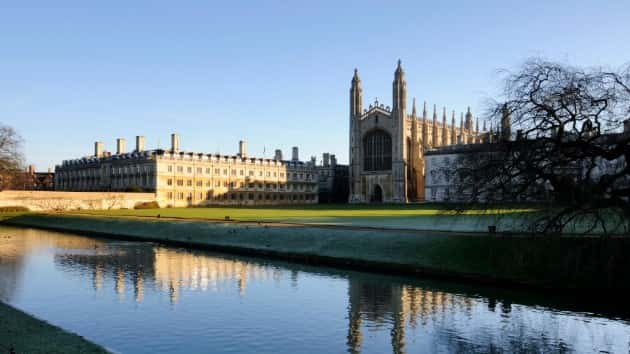
RollingEarth/iStock
 RollingEarth/iStock(LONDON) — The University of Cambridge announced Tuesday that it will begin a two-year investigative study into the school’s “dark phase of human history” of slavery.
RollingEarth/iStock(LONDON) — The University of Cambridge announced Tuesday that it will begin a two-year investigative study into the school’s “dark phase of human history” of slavery.
The study will look into how Britain’s colonial era shaped the university, including scholarship contribution, gifts and how the school has contributed to slavery in general.
The university’s vice-chancellor, Stephen H. Toope, has created an eight-person advisory group led by professor Martin Millet, along with two full-time Ph.D. researchers at the Center of African Studies.
“There is growing public and academic interest in the links between the older British universities and the slave trade, and it is only right that Cambridge should look into its own exposure to the profits of coerced labor during the colonial period,” Toope said in the statement.
According to his statement, the advisory group will present the final report, including “appropriate ways for the university to publicly acknowledge such (slavery) links and their modern impact,” in fall 2021.
Added Millet, “This will be an evidence-led and thorough piece of research into the University of Cambridge’s historical relationship with the slave trade and other forms of coerced labor. We cannot know at this stage what exactly it will find but it is reasonable to assume that, like many large British institutions during the colonial era, the university will have benefited directly or indirectly from, and contributed to, the practices of the time.”
Earlier this month, students at Georgetown University overwhelmingly voted in favor of a measure to impose a $27.20 per student per semester fee in recognition for the 272 slaves that the university sold in the late-1800s. The fee will be allocated to a charitable fund that would directly benefit the descendants of those slaves, Yasmine Salam, editor-in-chief of Georgetown’s student newspaper, The Hoya, told ABC News.
Copyright © 2019, ABC Radio. All rights reserved.